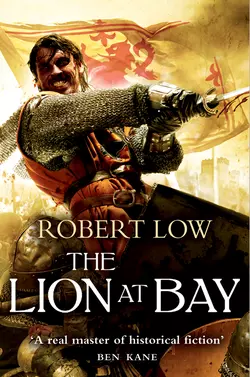The Complete Kingdom Trilogy: The Lion Wakes, The Lion at Bay, The Lion Rampant

Robert Low
Тип: электронная книга
Жанр: Современная зарубежная литература
Язык: на английском языке
Стоимость: 673.85 ₽
Статус: В продаже
Издательство: HarperCollins
Дата публикации: 18.04.2024
Отзывы: Пока нет Добавить отзыв
О книге: A NATION WILL FIGHT FOR ITS FREEDOM.Robert Low’s Kingdom Series on the making of Scotland, now available in one complete eBook for the first time and featuring a new and exclusive Author’s Note on the series.THE LION WAKESIt is 1296 and Scotland is in turmoil. The old King, Alexander III, has died and Scotland’s future is in peril. Edward I of England, desperate to keep control of his northern borders, arranges for John Baliol to take leadership of Scotland.But unrest is rife and many are determined to throw off the shackles of England. Among those men is Robert the Bruce, darkly handsome, young, angry and obsessed by his desire to win Scotland′s throne. He will fight for the freedom of the Scots until the end.THE LION AT BAYAfter fleeing to France following his defeat at the Battle of Falkirk, William Wallace has returned to Scottish soil to face his fate. But Robert the Bruce now stands between him and the crown. Warring factions, political intrigue and vicious battles threaten at every turn. Both men face uncertain futures, their efforts thwarted by shattered loyalties, superstition and rumour.THE LION RAMPANTIt is 1314. Robert the Bruce has reigned for eight hard years, driving out his English enemies with fire and sword. Lives have been shredded by war – wives, daughters and lovers slain or imprisoned. His men have lost almost everything.But three great fortresses in the Kingdom remain under English rule: Roxburgh, Stirling and Edinburgh. Bruce must capture each stronghold after another to come face-to-face with Edward II, the English King humiliated by defeat and determined to put down his Scottish enemy once and for all. And the last great battle for the Scottish throne will be decided on a bloody field called Bannockburn.